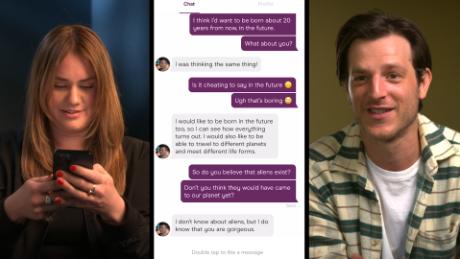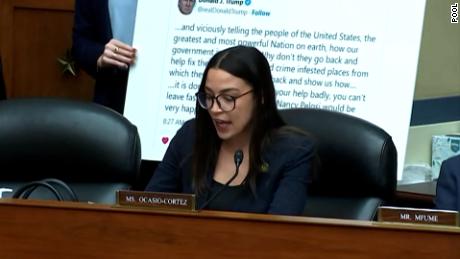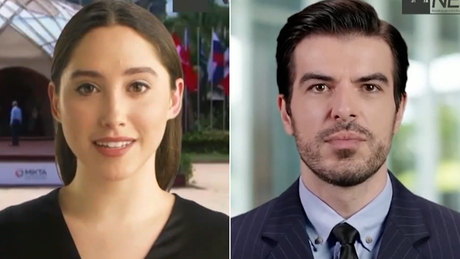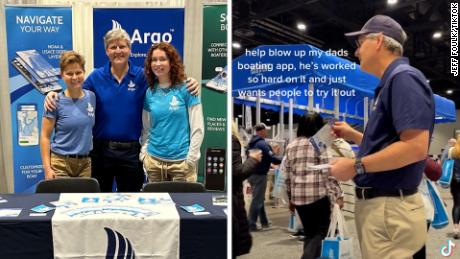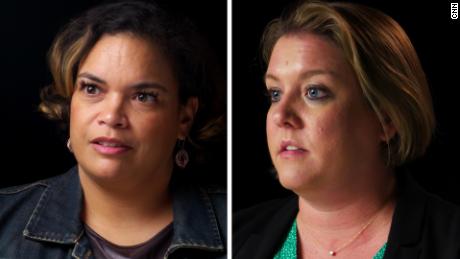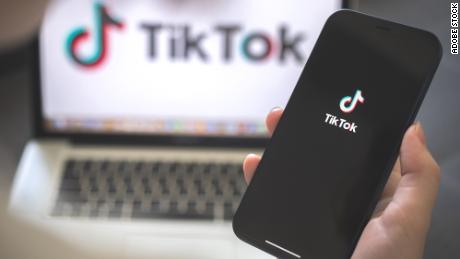New York (CNN Business)Jeremi Gorman loves an adrenaline rush. She's traveled the world to go bobsledding, hang gliding, water skiing and diving with sharks.
It's that thrill-seeking nature that led Gorman to leave Amazon (AMZN), where she had worked for more than six years тАФ most recently heading global advertising sales тАФ to join Snap (SNAP) as its chief business officer in November.
"The more that you can experience other cultures, I think the more value you can add to a company and to your life," said Gorman, in an interview with CNN Business. "Secondly, the adrenaline piece of it. If I didn't have that in my DNA, I probably wouldn't work here [at Snap] because it was a decision that I made quickly, it was leaping from one of the world's largest companies."
She likened her decision to join the parent company of Snapchat to riding a tricycle down a mountain way too fast (which she said she's also experienced in real life).
Gorman, 41, came to Snap at a time when the company was struggling with a declining user base, the departure of several executives and the fallout from an unpopular redesign of the Snapchat app.
"Virtually everything that could go wrong for Snapchat over the past couple years since going public has gone wrong," Rich Greenfield, a media and tech analyst at BTIG, wrote in a recent note to investors.
A big part of Snap's recovery is CEO Evan Spiegel's ability too bring in top talent like Gorman as the company rebuilds its credibility, Greenfield told CNN Business.
"Brands and advertisers know her, like her and have worked with her for years. That's really important for Snapchat," Greenfield said. "It really speaks to Evan [Spiegel] upgrading the talent across the company."
Gorman said she saw big opportunity at Snap after meeting with Spiegel, who made an impression on her.
"As I did more research and recognized that [Snapchat] is truly the default communication tool for teenagers, it was something that I thought, 'Well gosh I really need to be a part of that,'" she said. "This is the future. These are the people who will have all the spending power, and have all the influence."
This year, Snap's prospects seem to be improving. In its most recent quarter, Snapchat began adding users again. To continue growing its audience, the company is looking toward Generation Z, Gorman said. Pew Research Center defines Gen Z as anyone born in 1997 or later.
"It's a huge priority for us," she said. "I think it's a really strong differentiator for Snapchat."
Snapchat claims that, as of March, it reaches 90% of its 13-to-24-year-olds users through advertising in the United States.
Part of this effort is through continuing to expand its quirky augmented reality filters, which give users effects such as dog ears or flower crowns. Recently, Snapchat's filter that turns users into a male or female went viral. Its latest effect that makes users look like a baby is also popular. Gorman said those types of "zeitgeist" moments are part of attracting Gen Z, too, in addition to its continued focus on privacy, interacting with real friends and disappearing content.
Snap's stock has more than doubled since the beginning of the year, but is still trading below its $17 IPO price.
However, challenges remain. The company lost $310 million in the first three months of the year, a 20% improvement from the more than $385 million it lost in the same period a year ago, but still a long way from getting out of the red. Snap also continues to face heightened competition from Instagram, which is owned by Facebook (FB) and has copied many of its most popular features.
Like other tech companies, improving diversity across its workforce remains an issue, although Gorman joins an executive leadership team that has become more diverse than a year ago.
Besides Gorman, it also includes Chief People Officer Lara Sweet and Chief Communications Officer Julie Henderson. In April, the company announced Kenny Mitchell, who is black and a former McDonald's (MCD) executive, would be its first chief marketing officer.
Still, women comprised less than a quarter of the company's senior managers, and only 13% of tech roles last year, according to data Snap provided to Cheddar. Unlike other tech companies, Snap does not release public diversity reports.
"It definitely does start at the top," said Gorman. "Seeing those changes at the top is the most important lesson that we can teach the company at scale, and then obviously those kinds of things trickle down."
"As you start to see that more broadly across the company, it will show people we mean it, and that it's not just platitudes," Gorman added.
The company also recently hired Oona King, its first VP of diversity and inclusion.
In the past, the company has faced accusations of diversity and culture problems. Earlier this year, the Wall Street Journal reported that Snap had paid settlements to women who were laid off and alleged discrimination. Last year, a former female engineer spoke out against the company, saying it had a "toxic" and "sexist" work culture, which Spiegel said was a "wake-up call."
Gorman said she feels a responsibility to be a role model for women at the company. She is part of an employee resource group for women called the "Lady Chillahs," which puts on events and meets regularly. She has also spoken on internal panels and participates in monthly all-hands meetings and in one-on-one lunches Spiegel holds in the main cafeteria, where employees can come up and ask him and the executive with whom he's dining questions.
Snap also has a "stretch goal" of becoming profitable this year. While Gorman wouldn't comment on how difficult of a path that will be, she noted it is an internal goal, not a publicly reported one.
"My half of the responsibility in that is driving enough revenue," she said. "I see my role in that as very substantial, and that without the revenue growth at a certain rate, it wouldn't be possible. I've done a lot with the sales organization specifically to ensure we are set up for the most successful structure possible."
While that remains a goal for Snap this year, Gorman's next personal adventure will be bungee jumping off a bridge in New Zealand.



